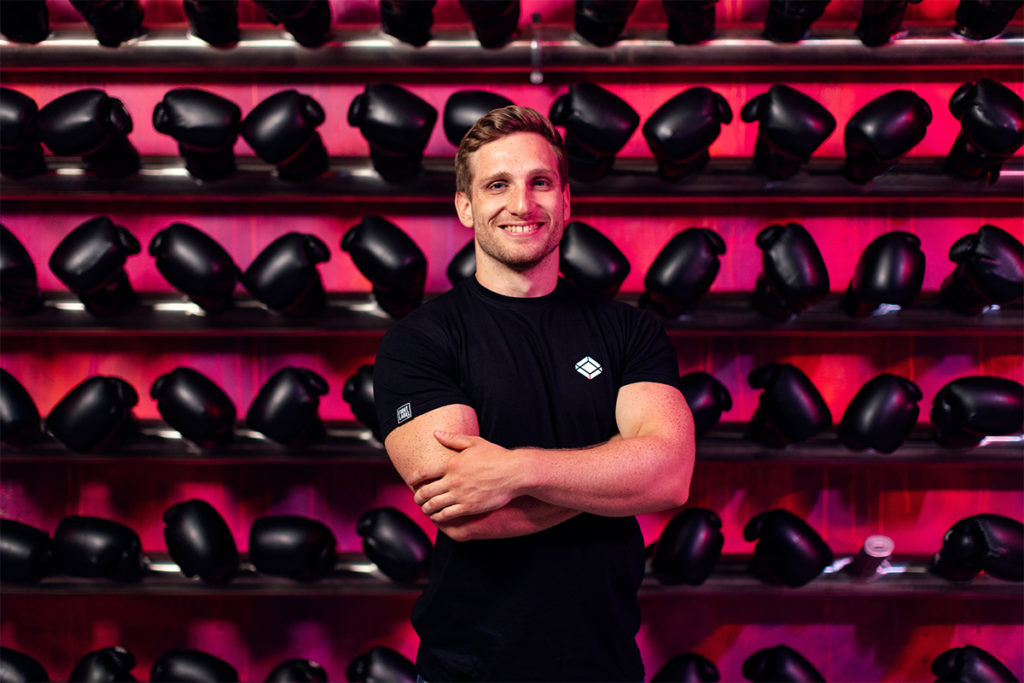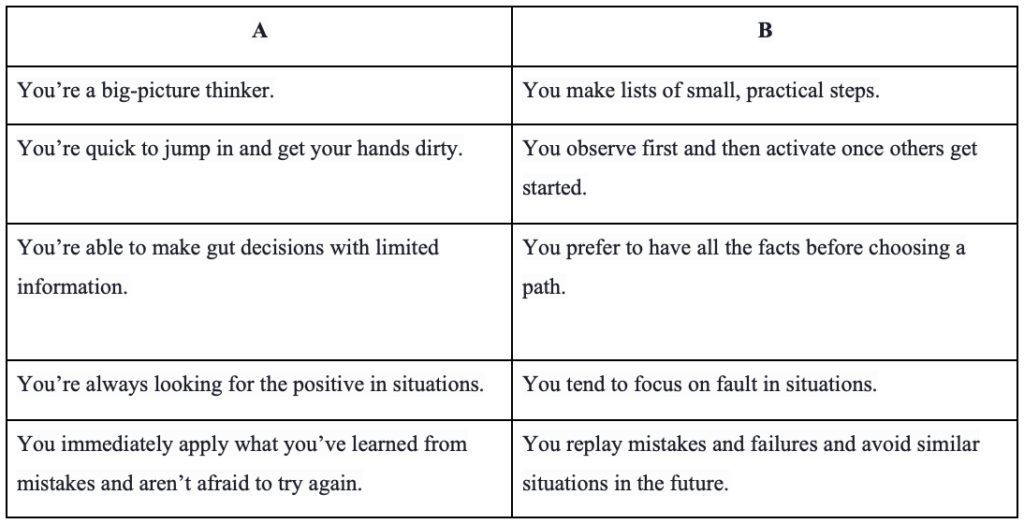Top Entrepreneurial Skills for Success, Part One
Discover a formula for getting your fitness business off the ground.

It’s admirable to want to be an entrepreneur in the fitness industry, even in these uncertain times. You are, no doubt, passionate about wellness and eager to help people, and you likely have a wealth of knowledge in your specific area of expertise. However, it takes more than passion and skill to be the one who calls all the shots.
As people return to some semblance of normalcy, they’re going to want your expertise and guidance. In the first installment of this two-part article, we’ll dive into three skill categories that are a must when you’re contemplating starting your own business. After you’ve identified where you’re solid and where you need a little extra support, we’ll review options for filling in the gaps.
Mindset
Mindset is about more than the desire to be in business for yourself. This category encompasses your hard-coded ways of thinking, believing and behaving.
Which of the following attributes best describe you?

Vision. The best entrepreneurs seek to improve current products and services and can see what a customer needs before that need has been acknowledged. Success requires the ability to envision the endgame and, simultaneously, have a clear understanding of whom you serve, what primary result you offer and why you do the work. You must not only know this information but also be able to articulate it!Entrepreneurs require everything you see in the “A” column. Here’s a rundown of key qualities:
Initiative. Entrepreneurs do not sit on the sidelines. They are the first to jump into the arena, regardless of whether or not they are fully prepared to do so. When you’re in business for yourself, each day starts with a clean slate, and you schedule the appointments, prioritize the tasks and do the work. That takes discipline and drive.
Risk Tolerance. In addition to having great ideas and the ability to get started, entrepreneurs must be able to determine the best path forward with whatever information they have at their disposal. Unfortunately, when charting a new path, you won’t have a crystal ball. To avoid analysis paralysis, the best entrepreneurs simply use the data they’ve got. Since they know their audience and feel committed to their path, they quickly make decisions and make things happen, one way or the other.
Optimism. An entrepreneur’s path is rarely smooth. To continue paving the way, you’ll need to be the eternal optimist and find the silver lining whenever possible. This will have to be your motto as you search for the best business route.
Resilience. When striking out on your own, you’re bound to experience a few bumps along the way. Successful business owners take setbacks in stride and believe there is no such thing as failure—there’s only learning. They quickly take what they learn from mistakes and put it into action!
Interpersonal Skills
While starting your own business may eliminate the “boss interaction,” it certainly won’t cut down on the number of people you’ll need to interact with daily. This skill category encompasses your ability to build and maintain excellent relationships with various people.
Which of the following describes you? Choose all that apply!
- You are skilled at enrolling others in your vision.
- You possess contagious enthusiasm.
- You’re comfortable with delegation.
- You are a proficient writer and speaker.
- You’re curious and interested in other people’s thoughts and opinions.
- You’re an active and empathetic listener.
- You are able to read people and adjust accordingly.
- You’re quick to find common ground and resolve differences.
- You are a confident negotiator.
- You’re armed with strong personal values that guide your behavior.
The more of the above items you checked, the better! Each statement speaks to the following attributes, each of which is a “fitpreneur” must.
Leadership. To grow a business, even if you’re beginning as a team of one, you must possess leadership skills, be able to articulate your vision and get others to buy in! Then, once you get buy-in, you’ll need to motivate others to act. And finally, although you’ll still be the chief worker bee, you’ll have to learn how to delegate.
Communication. When you’re running a business, you must be a polished communicator, as both writing and speaking will be necessary. Active listening is critical, because you’ll be communicating with clients, potential clients, partners, team members, influencers, investors and more, all of whom will have different backgrounds and life experiences.
Emotional Intelligence. All of the people you interface with will have different communication requirements. You’ll need to be able to tailor your communication style to the situation and the audience. Each person will require a different approach, and your ability to take in the cues and clues and adapt will increase your chances of success.
Integrity. Finally, you’ll need to consider your values in order to provide “guardrails” for how you will conduct yourself. This applies to your interaction with employees (if and when you hire), partners, clients, leads, vendors, etc. It’s essential for entrepreneurs to have a strong center and clear boundaries.
Business Knowledge
To run a business, you must understand business. This skill category includes the main functional areas of creating and operating a business, regardless of size and scope.
Which of the following best describes you?

Strategic thinking. Strong business concepts hinge on the ability to plan for the future. Part of this involves creating strategies that account for changing environments while considering the various challenges that may come your way. Both critical thinking and creative thinking are required.You guessed it: Creating a thriving business requires that you embrace all of column “A.” It also helps to have the following attributes.
Operations. A good business idea will take you only so far. Long-term success is built on reliable systems and processes. Even if you’re the only one working in your business, you must create and document each facet of your organization and the steps you take to function smoothly. To produce reliable products and services, entrepreneurs must be able to create a space for innovation while also operating in an organized manner.
Sales and marketing. It’s not enough to have an excellent service or product; you need people to learn about you and what you offer. As an entrepreneur, you’ll need to determine the best way to spread the word, lead people into your sales cycles and then capitalize on those people’s interest.
Accounting. It may not be fun, but you’ll need to choose the best way to structure your company and then set up a system to manage accounts receivable, accounts payable, payroll and taxes. You’ll also need to understand budgeting and forecasting.
Life as an entrepreneur is multifaceted and requires many skills. Hopefully, in reviewing the buckets of responsibility necessary to create and sustain a successful business, you found most of what you need is in your wheelhouse. However, there’s no need to give up if this is not the case. In our next installment, we’ll look at resources that will help you get a jump-start on learning or outsourcing each of the areas discussed.
Shannon Fable
Shannon Fable is a sought-after speaker, author and thought leader in the area of fitness business development and strategic innovation. She has spent more than two decades helping impressive brands such as Anytime Fitness, ACE, FIT4MOM® and BOSU® with business and program development. Fable served as chair of the ACE Board of Directors and is the co-founder of GroupEx PRO®, a cloud-based group fitness management tool that she successfully sold to Daxko in 2019. As a certified Book Yourself Solid® business coach, she helps fitness professionals navigate the industry to build scalable and sustainable careers.






